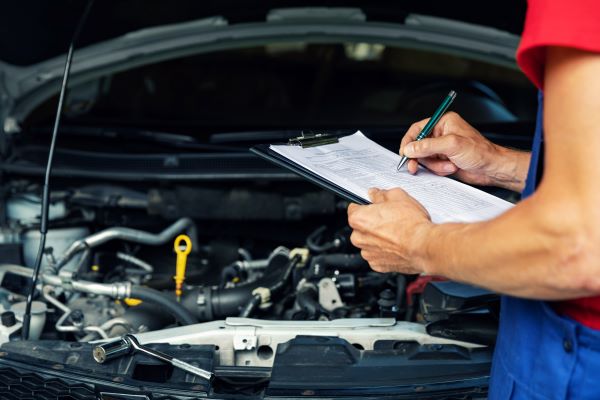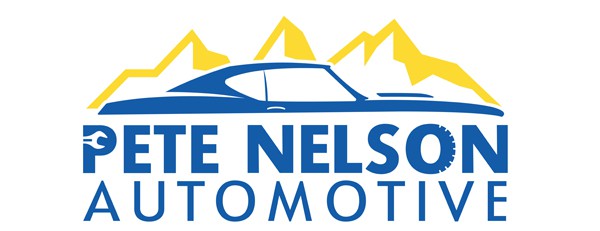As a vehicle owner, it’s essential to stay on top of your car’s maintenance and address any issues as soon as they arise. Ignoring small problems can lead to costly repairs down the road or, even worse, safety hazards. At Pete Nelson Automotive, located in Sun City, Arizona, we specialize in identifying and fixing these issues before they become major concerns. If you have any concerns about your vehicle or need expert advice, don’t hesitate to call us at 623-974-4723. In this guide, we’ll cover the top signs that it’s time to visit your trusted local car repair shop.

1. Unusual Noises from Your Vehicle
Strange noises coming from your car are often early indicators that something is wrong. Each type of noise can signal a different issue:
- Squealing Brakes: If your brakes squeal when you apply pressure, it’s likely that your brake pads are worn down. This noise happens because the metal wear indicator on the brake pads is exposed and rubbing against the rotor. If left unchecked, worn brake pads can damage the rotors, leading to more expensive repairs. It’s essential to replace the pads as soon as you hear this sound.
- Clunking or Knocking Sounds from the Suspension: This is often caused by loose or damaged components in your suspension system, such as shocks, struts, or control arms. The noise may be more noticeable when going over bumps or making turns. Driving with worn suspension components can affect the handling and safety of your car, making it vital to address these issues quickly.
- Grinding or Growling from the Engine: Grinding noises from the engine often indicate worn-out bearings, a failing water pump, or other internal engine issues. This could also be a sign that the transmission is grinding, which may point to problems with the clutch or gears. These issues can lead to severe engine damage if ignored.
Ignoring unusual noises can lead to higher repair costs down the road or even pose safety risks. At Pete Nelson Automotive, we are equipped with the expertise and tools to quickly identify and resolve the source of these sounds, ensuring your car remains safe and roadworthy.
2. Warning Lights on the Dashboard
Dashboard warning lights are your car’s way of communicating that something isn’t right. Each light points to a specific area that needs attention:
- Check Engine Light: The check engine light can indicate a wide variety of problems, ranging from something simple like a loose gas cap to more serious issues such as a malfunctioning oxygen sensor, catalytic converter, or spark plugs. Ignoring this light could lead to poor performance, reduced fuel efficiency, or even engine failure.
- Oil Pressure Light: This light illuminates when the engine’s oil pressure is too low. If you see this warning, stop driving immediately and check your oil level. Driving with low oil pressure can cause significant engine damage. If the oil level is fine, there may be a problem with the oil pump or a leak.
- Battery Light: The battery light indicates that the car’s electrical system isn’t functioning correctly, which could mean a failing alternator, a loose or corroded battery cable, or a weak battery. Ignoring this could leave you stranded with a car that won’t start.
At Pete Nelson Automotive, we have the latest diagnostic tools to accurately pinpoint the cause of dashboard warning lights and recommend the appropriate repairs. Addressing these lights promptly can prevent larger, more expensive problems.
3. Reduced Fuel Efficiency
If you’ve noticed that your car isn’t getting as many miles per gallon as it used to, it’s usually a sign that something is off with the engine’s performance. There are several potential causes:
- A Clogged Air Filter: The air filter prevents dirt and debris from entering the engine. Over time, it can become clogged, restricting airflow and causing the engine to work harder and burn more fuel. Replacing the air filter regularly helps to maintain optimal fuel efficiency.
- Faulty Spark Plugs: Spark plugs ignite the air-fuel mixture in the engine. Worn or dirty spark plugs can lead to incomplete combustion, resulting in poor performance and reduced fuel efficiency. Replacing spark plugs at recommended intervals is an inexpensive way to ensure your engine runs smoothly.
- Issues with the Fuel Injectors: Fuel injectors deliver fuel into the engine. If they’re dirty or malfunctioning, they can affect the amount of fuel delivered to the engine, leading to reduced fuel economy. Professional cleaning or replacing faulty injectors can solve this issue.
At Pete Nelson Automotive, our technicians will thoroughly inspect your engine and related components to restore your vehicle’s fuel efficiency, saving you money at the pump and improving your car’s performance.
4. Difficulty Starting the Engine
Starting problems can be frustrating and are often a sign of issues within the electrical or ignition systems. Here are the most common culprits:
- A Weak or Dead Battery: The battery provides the initial power to start your car. If it’s weak or nearing the end of its life, you may hear a clicking noise or nothing at all when trying to start the engine. Replacing the battery before it fails completely can prevent you from getting stranded.
- A Failing Alternator: The alternator charges the battery while the engine is running. If the alternator is failing, the battery will not stay charged, and you could experience starting issues. In this case, both the alternator and battery may need replacement.
- Problems with the Ignition System: Faulty ignition switches, worn ignition coils, or bad spark plugs can prevent your car from starting. Sometimes, these problems may also trigger a check engine light.
Whether the solution is as simple as replacing the battery or involves more complex repairs, our experienced team at Pete Nelson Automotive can diagnose and fix your starting issues quickly and affordably.
5. Steering or Handling Issues
Your vehicle’s steering and handling are critical to its safety and performance. Any problems with these systems should be addressed immediately. Signs that something’s wrong include:
- A Loose Steering Wheel or Excessive Play: If the steering feels loose or unresponsive, it’s usually a sign of worn steering components such as tie rods or a faulty steering rack. Driving with loose steering can make controlling your vehicle difficult, especially at high speeds.
- Vibrations While Driving: If your steering wheel vibrates while driving, it’s often due to unbalanced wheels, misaligned tires, or warped brake rotors. These issues can lead to uneven tire wear and poor handling, making it harder to steer the car.
- Pulling to One Side: If your vehicle drifts to one side, even when you’re driving straight, it’s a sign that your alignment is off or you have uneven tire pressure. Driving with poor alignment can cause tires to wear unevenly and may lead to more severe suspension problems.
At Pete Nelson Automotive, we’ll perform a thorough inspection of your vehicle’s steering and suspension systems to ensure everything is functioning correctly, helping you stay safe on the road.
6. Fluid Leaks
Noticing puddles or stains under your car can be alarming. Fluid leaks are often a sign of significant issues that need immediate attention. Here are the most common types of fluid leaks:
- Oil Leaks: Engine oil leaks can be caused by damaged gaskets, seals, or oil pans. If left untreated, it can lead to engine damage or decreased performance. Look for dark brown or black oil spots under your vehicle.
- Transmission Fluid Leaks: Transmission fluid is typically red or pink and can indicate problems with the transmission, such as a damaged seal or hose. If ignored, transmission fluid leaks can result in transmission failure, leading to costly repairs.
- Coolant Leaks: Coolant, which is usually green or orange, helps keep your engine from overheating. Leaks in the coolant system can be due to a cracked radiator, damaged hoses, or a faulty water pump. Overheating can cause severe engine damage.
At Pete Nelson Automotive, our skilled technicians will perform a thorough inspection to identify the source of any leaks. We use advanced diagnostic tools to ensure that your vehicle’s fluids are properly managed, preventing potential damage and keeping your car running smoothly.
7. Unusual Vibrations or Shaking
Feeling vibrations or shaking while driving can be unsettling and is often a sign of underlying issues. Common causes include:
- Unbalanced or Misaligned Tires: If your tires are not balanced or aligned correctly, it can cause uneven wear and vibrations, especially at higher speeds. This can affect your car’s handling and safety.
- Worn Brake Rotors: When brake rotors become worn or warped, you may feel vibrations or pulsations through the brake pedal when braking. This can affect braking performance and safety.
- Suspension or Drivetrain Problems: Issues with the suspension system, such as worn-out shocks or struts, or drivetrain components like the driveshaft, can cause noticeable vibrations and affect ride quality.
At Pete Nelson Automotive, we will diagnose the cause of any unusual vibrations or shaking. Our team will check your tires, brakes, and suspension to ensure a smooth and safe driving experience.
8. Braking Problems
Brakes are a crucial safety feature, and any issues should be addressed immediately. Key signs of braking problems include:
- Squeaking or Squealing Brakes: This noise typically indicates that the brake pads are worn and need replacement. If ignored, it can lead to more severe damage to the braking system.
- A Soft Brake Pedal: If your brake pedal feels spongy or goes to the floor, it could mean there is air in the brake lines, a brake fluid leak, or a problem with the master cylinder. This can significantly impact your ability to stop safely.
- Car Pulling to One Side When Braking: If your car pulls to one side while braking, it may be due to uneven brake pad wear, a stuck brake caliper, or alignment issues. This can affect vehicle stability and safety.
Pete Nelson Automotive offers comprehensive brake services, including pad replacement, rotor resurfacing, and brake fluid flushes. Our experts will ensure that your braking system is in top condition, keeping you safe on the road.
9. Transmission Troubles
Transmission issues can be complex and require prompt attention. Common transmission problems include:
- Slipping Gears: When the transmission slips out of gear or struggles to stay in gear, it can be due to worn transmission components, low fluid levels, or a failing transmission control module. This can lead to loss of power and control.
- Delayed Shifts: If you experience delays in shifting gears, it may be caused by low transmission fluid, a malfunctioning solenoid, or internal transmission damage. This can affect the vehicle’s performance and drive ability.
- Unusual Noises: Grinding, whining, or clunking noises when shifting gears can indicate serious transmission problems, such as worn gears or bearings.
At Pete Nelson Automotive, we offer expert transmission diagnostics and repair services. If you’re noticing any of these symptoms, bring your car in as soon as possible to prevent more extensive (and expensive) damage. If you have any car concerns or need a professional evaluation, call us at 623-974-4723. We’re ready to assist with any issues you might have.


